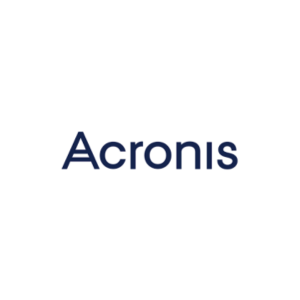Insights
INSIGHTS
All Topics
Launching an online emergency appeal
17 Apr 2020by Christine Chiu
It can be daunting setting up a digital emergency appeal. Here’s how to get started
Charity finances are no doubt feeling the impact of social-distancing measures on finances. Coming together to assess the situation, the Institute of Fundraising in partnership with the Charity Finance Group and National Council for Voluntary Organisations, found that charities reported a 48% loss in income and nearly half of participants in the survey cited an increased demand for services. With income down and demand on services high, charity digital leaders can launch online emergency appeals.
Start with your own website
To start the appeal, digital leaders have focused on charity websites, ensuring that visitors understand the impact of the virus on operations. Improving transparency through messaging, many charities are differentiating where funds are going – the Brain Charity’s Covid-19 emergency appeal supports two new projects, a meals-on-wheels service and digital group social services.
Honest, impactful statements about charity finances have also been posted to encourage donations. “With no certainty as to when these (fundraising) events may be rearranged, the charity faces a loss of fundraising income amounting to £500,000 in 2020,” said Racing Welfare on their own website.
Connect with wider themes and tailor digital messages
Helping to connect the public, NHS Charities Together campaign has catch-phrases from the media and viral appeal through the Clap for Carers evenings. The health charity has raised over £24 million across the Virgin MoneyGiving digital platform.
The messaging has focused on the UK coming together to combat coronavirus by protecting the NHS, while Facebook, Instagram, and their own website have done the rest. With less than 4,000 followers on Facebook and Instagram, the charity’s digital fundraiser has gone viral through media coverage and community clapping.
Platforms to help launch your digital fundraising appeal
With the public energised and primed to act in the fight against coronavirus, charities have an opportunity to launch digital fundraising appeals. To get the most out of online platforms, we list some of the most prominent digital fundraising platforms and suggest some of the key issues to consider.
The market leader, JustGiving’s global audience base and easy-to-navigate platform makes it a must-have. For Covid-19, emergency appeals have already been categorized for donors, allowing causes to be grouped together.
Fees: 0% platform fees, platform charges for payments a rate of 1.9% + 20p and 5% for processing GiftAid
Pros: For charity digital leaders, the JustGiving platform is a gateway to fundraising
Cons: Charity causes tend to compete with one another
Similar to JustGiving but a slightly smaller fundraising base, record amounts have also been raised – the London Marathon raised £66.4 million on the site.
Fees: Unlike JustGiving plans which can charge monthly fees, there are no monthly fees. There is a 2% platform fee and 2.5% processing fee but GiftAid is free.
Pros: Best for UK based charities
Cons: Slight biased towards sports charities
Not a crowd funder, Network for Good is a white-label digital fundraising and donor management platform that charity digital leaders can customise.
Fees: Range from $200 - $400 per month
Pros: Total package of donor management and fundraising software
Cons: Set up is not as simple as creating a charity digital fundraising page
Tapping into retailers, charities can link up with 1.8 million donors doing their shopping. Charities need to register their cause to the site for donors to fund through their shopping.
Fees: Payment fees are 1.4% + 20p per card and £1.60 per £100 raised
Pros: Registered retailers are well known, including Waitrose and Booking.com
Cons: Small donor base, and donors need to choose the cause from a list
Fully integrated with Facebook, charity digital leaders can tap into mobile and online networks. Charity digital leaders can also use this platform to advertise for different fundraising types, including standalone pages, e-store fronts, and DIY projects.
Fees: Charities can opt for the free package of services, and pay only for the payment processing fees.
Pros: Close integration with social media platforms allows charities to increase reach
Cons: Fundraising amounts may be less substantial than market leaders
Aimed at advertising campaigns, the digital fundraising platform offers charities customisable pages for causes. Charities can post video and image content.
Fees: 4.9% platform fee, credit card processing fee 2.9% + $.30p per transaction
Pros: The Fundly app can help charity digital leaders go mobile
Cons: Causes compete with regular charity appeals as they are all listed as a suite of options
Our Events
Charity Digital Academy
Our courses aim, in just three hours, to enhance soft skills and hard skills, boost your knowledge of finance and artificial intelligence, and supercharge your digital capabilities. Check out some of the incredible options by clicking here.


















